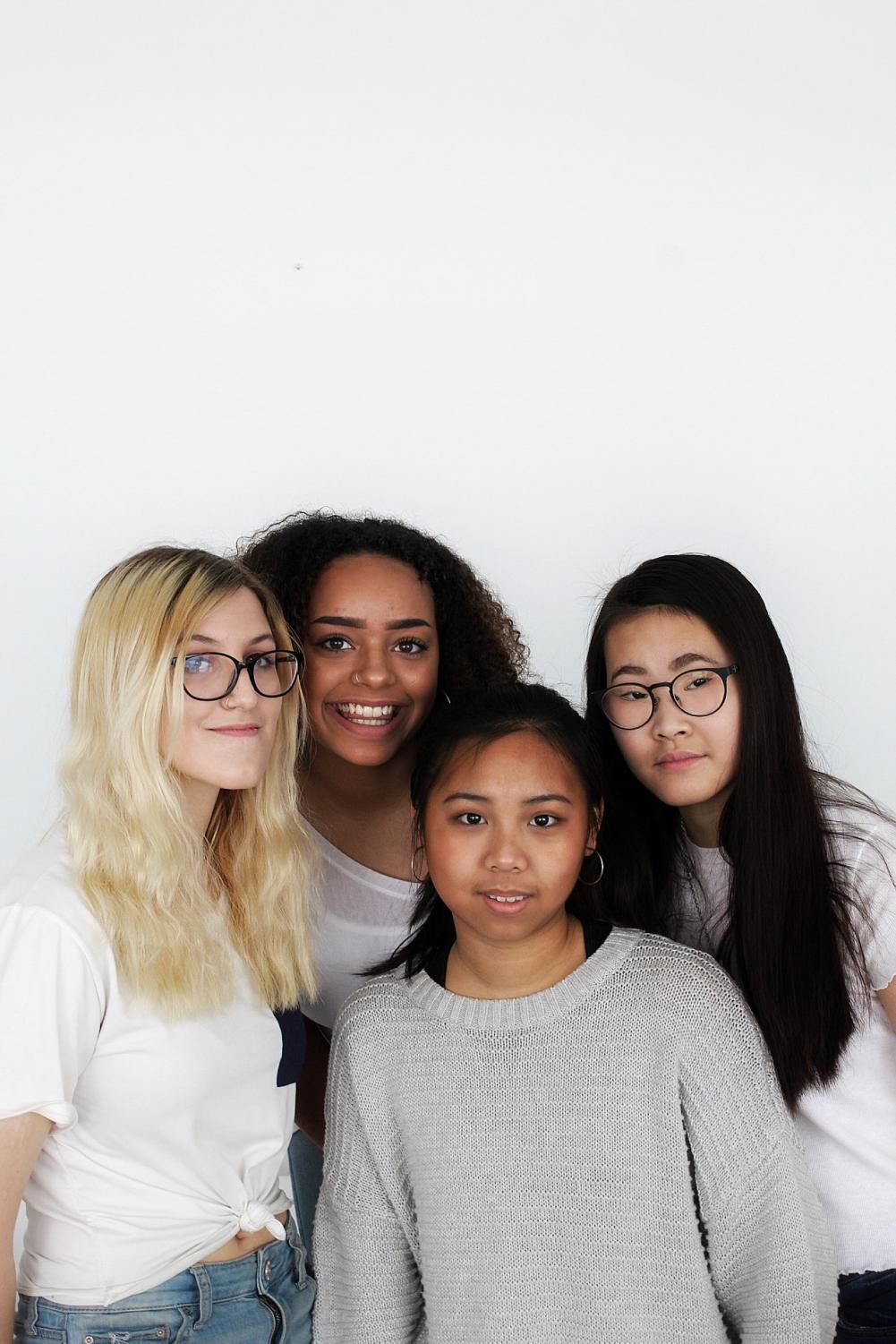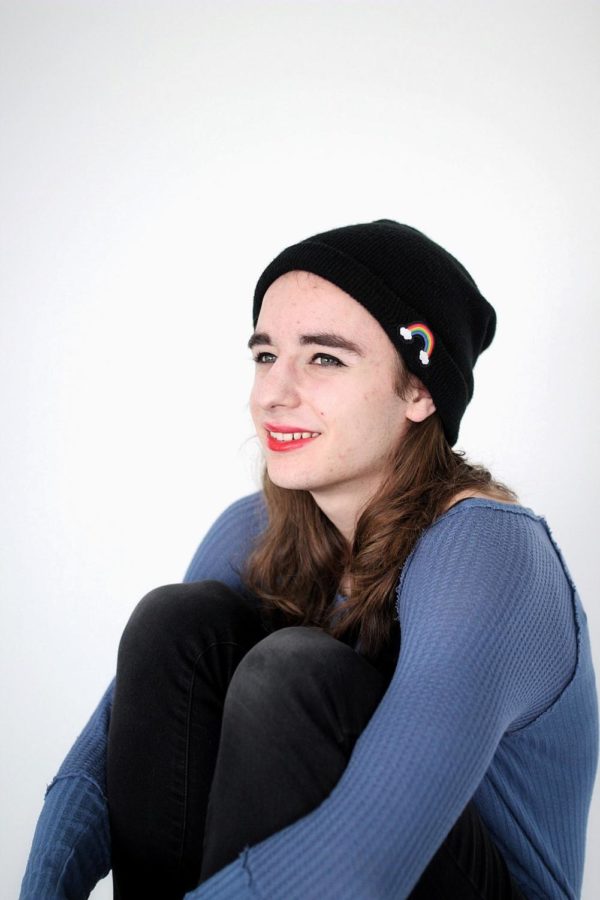Our stories: A deeper look into who Grand Haven is
March 12, 2018
13 stories. 13 people. 13 students out of 2,000.
We present 13 articles in an attempt to showcase the different lives of different people. Thank you to those who stepped up to tell us their experiences.
With this story package, we hope to foster a conversation about who we are as a school, as a community, and as individuals. 13 stories cannot accurately cover every unique and complex perspective on life, but it’s a start.
It’s hard to find the courage to speak up. It’s hard to challenge your predetermined vision of the world. It’s hard to put yourself in someone else’s shoes.
But it is easy to listen, and that’s where we begin.
Staff editorial: We need bravery in the face of adversity
STAFF EDITORIAL
The Grand Haven stereotype is evident. Ask any high school student in West Michigan and you’ll probably get some sort of “oh they’re white, rich spoiled kids… but they have a nice beach”. Yes, our population is mostly privileged, mostly white and our beach is pretty great. But people ignore that our community is filled with different socioeconomic backgrounds, races, sexualities, struggles and passions. This is because we let them.
The Bucs’ Blade is spotlighting 13 unique stories, only 13 out of around 2,000 students. Seven of these stories are presented today in our print paper. We had a team of 11 staff members work over three weeks to scour for new faces, new stories, new perspectives. We wrote draft after draft, hoping to showcase the different lives of the peers around us.
We hope that in reading these stories, a greater understanding that people are dealing with everything from mental illness, sexuality, anorexia, bulimia, and race, is gained. We hope that we will gain a stronger idea of who we are — and that idea will spread so that others know it, too.
Our job as a newspaper is to provide people with an opportunity to be heard. But most importantly, it is to give the student body the information it needs to be educated and aware. To be exposed to the rawness of people’s lives is a gift. It allows for an understanding that every single face you see in the hall has a story, each accompanied with unique struggles. The 13 pages that hold a few of these stories are evidence that everyone is fighting a battle.
The courage it takes to speak so openly about something so close to one’s core is hard to find. It’s even harder to share with someone you barely know, and then share it with over 2,000 of your peers. While we had some girls step forward with enthusiasm, very few boys followed suit, further showing how deep the fear of not fitting in is embedded in our school. So, to everyone who talked to the Blade for this issue or considered it, thank you.
The purpose of these stories isn’t to guilt readers into feeling bad for their classmates or to push an agenda. It’s to share and begin a discussion about who we are, both as Grand Haven and as individuals.
By sharing these stories, we hope to show that there are things happening within our school that most may be unaware of. That there are students you may pass in the hallway and never even notice. We want people to read this edition and be able to look at our school differently.
You, the reader of this edition of the Bucs’ Blade have the power to change the stigmas and issues that are talked about in this paper. You can have an honest conversation about the issues you face, or you can get to know someone who faces their own struggles. If you simply recognize that there are problems with how we treat others, and choose to change your actions, you can make the difference that we need.
Miah Masvero
Junior Miah Masvero loves math.
She loves math so much that she uses its logical systems to think her way out of stressful situations. But life isn’t always so binary for Masvero.
“I am an asexual, trans girl lesbian,” Masvero said.
This means that she doesn’t feel any sexual attraction, but still feels romantically attracted to women. It also means she faces judgement and discrimination from people in her life, even the ones closest to her.
“My mom kicked me out after I came out to her,” Masvero said. “My dad’s been decently supportive about it. I’ve had to convince him a little bit but he’s coming around. He was confused, because a lot of my activities aren’t inherently feminine, so when he heard about it, he was like, ‘well what do you mean, you don’t even like makeup or painting your nails’, and it’s like that’s not what being a girl is about, Dad.”
To Masvero, being a girl doesn’t consist of “stereotypical feminine” activities. To her, it’s simply living and being comfortable with herself.
“I tried to imagine myself as a grown man and I wasn’t able to. It was just easier to imagine myself as a grown woman,” Masvero said.
It took many years for her to realize that she was transgender, first becoming exposed to the LGBTQ community in eighth grade. It took her even longer to grapple with that identity, feeling like she didn’t belong.
“I felt like I was cheating, because I’d been extremely homophobic and transphobic in the past, because I was raised in a Christian school and a religious household,” Masvero said. “I felt like I was invading that space, and it took me a good four to five months to realize that this is where I belong.”
Near the beginning of her sophomore year, Masvero decided it was time for a change. She was getting ready for homecoming, but the thought of it made her sick.
“I was looking at my outfit, it was a suit at the time, and I just had this pit in my stomach, because I was like ‘I don’t want to put this on again’,” Masvero said.
She quickly made plans with a friend of hers to head to the Lakes Mall and find a dress that Masvero could wear. Her friend help keep the dress hidden from Masvero’s parents, and on the night of homecoming she brought the dress to the dance to change into later.
“I had a bit of an awkward encounter with Deputy Devries because I brought [the dress] in a bag and he asked me what I had in the bag,” Masvero said. “I told him a change of clothes and he told me to put the bag away.”
She managed to change into the dress at the dance, and that night was the first moment of her public transition.
Masvero is in what she describes as stage three of her transition. It began with realizing she wasn’t comfortable as a male, and then moved to therapy. She’s currently dressing in public as a female and is open and out with everyone in her life. She hopes to soon start hormones to further her transition.
One of the hardest things for her to deal with isn’t direct, hateful discrimination, but small and offhand comments.
“I can deal with harassment,” Masvero said. “I can deal with people calling me an abomination, or whatever. It’s almost funny, in a way. But what really gets to me is when people purposely misgender me. I get a little release in my brain when someone calls me Miah or she. And the opposite happens when someone calls me he. It really hurts.”
Masvero wants to study the mathematics of human error at MIT, using math to view the world and the way people interact. There’s one thing she wishes she could change and understand, but she knows she might not be able to.
“It’d be great to live in a community where there’s a lot of acceptance, because obviously I’m a bit different and that’s hard,” Masvero said. “But there’s only so much you can do.”

